Special celebrations will be in place for Independence Day in Greece 2021. Here is some historical background, and a little more information on what to expect on 25 March 2021.
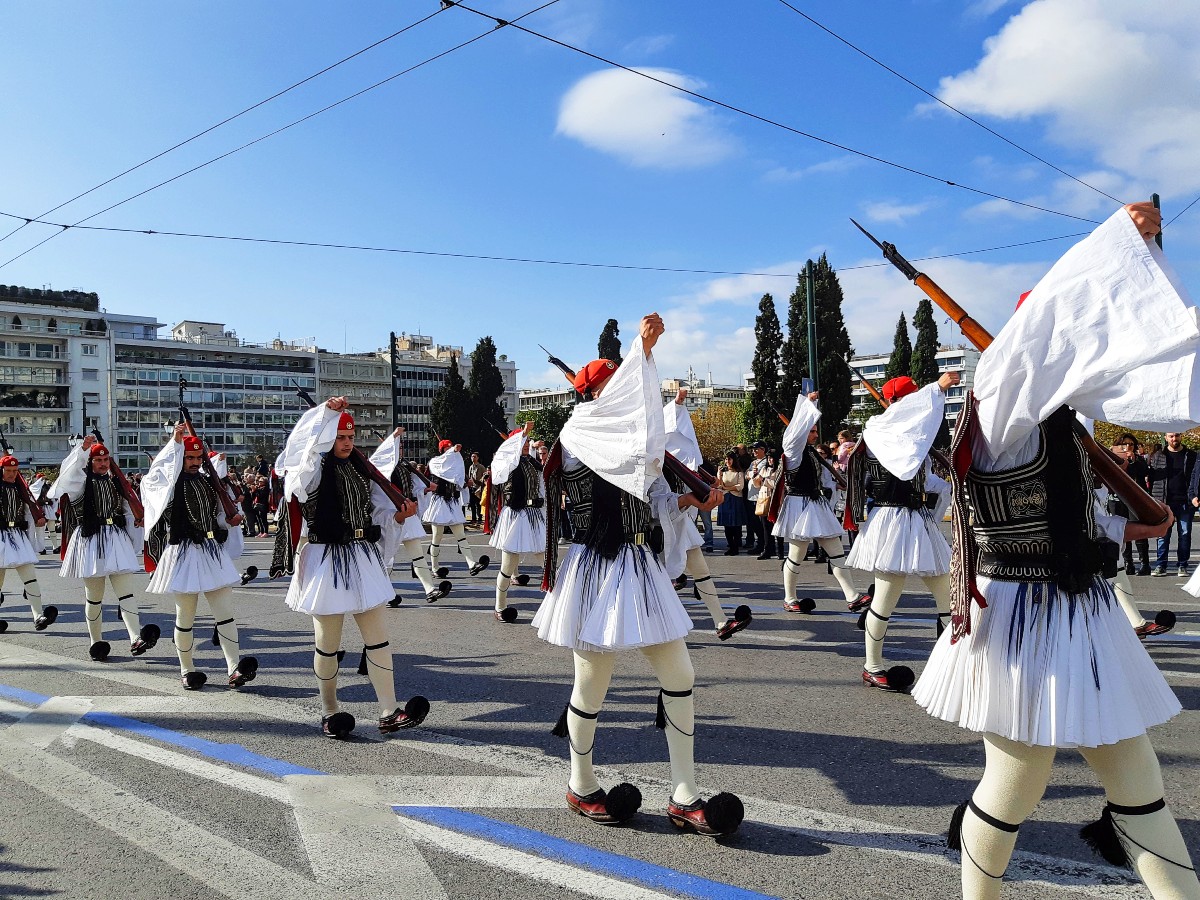
25 March Independence Day in Greece
The 25th of March is an important day throughout Greece. It’s one of our two National Independence Days. The other one is the so-called Oxi Day, which is on the 28th October.
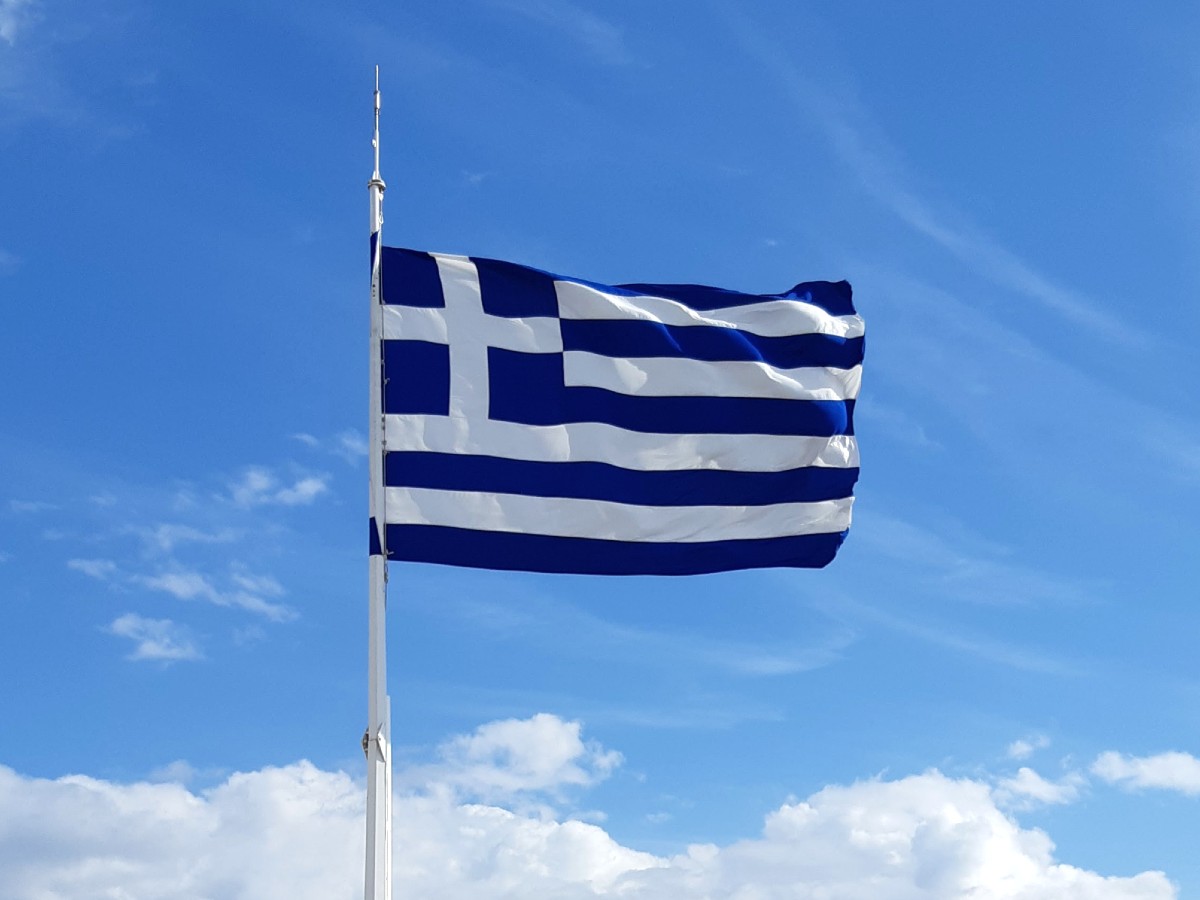
But what are we celebrating on the 25th March Independence Day in Greece, and why is this day so special? This article aims to give a little bit of context. It also describes the special celebrations that take place on the day.
Disclaimer: Writing an article for the Greek Revolution in 1821 was a huge challenge. I hope this short introduction will inspire you to do your own further research on our recent history!
From Ancient Greece to the Venetians and the Ottomans
In order to explain more about the Greek Revolution in 1821, we’d need to go further back in time. Who did the Greeks rebel against in 1821? And what exactly was “Greece” at that time?
As you probably know, the country that we all know as “Greece” or “Hellenic Republic” has a very long history. Many visitors are familiar with our ancient past, especially the Classical Era. This is a brief but extremely significant period, when many of our world-famous ancient sites, like the Acropolis, were built. This was followed by the Hellenistic and Roman Eras.
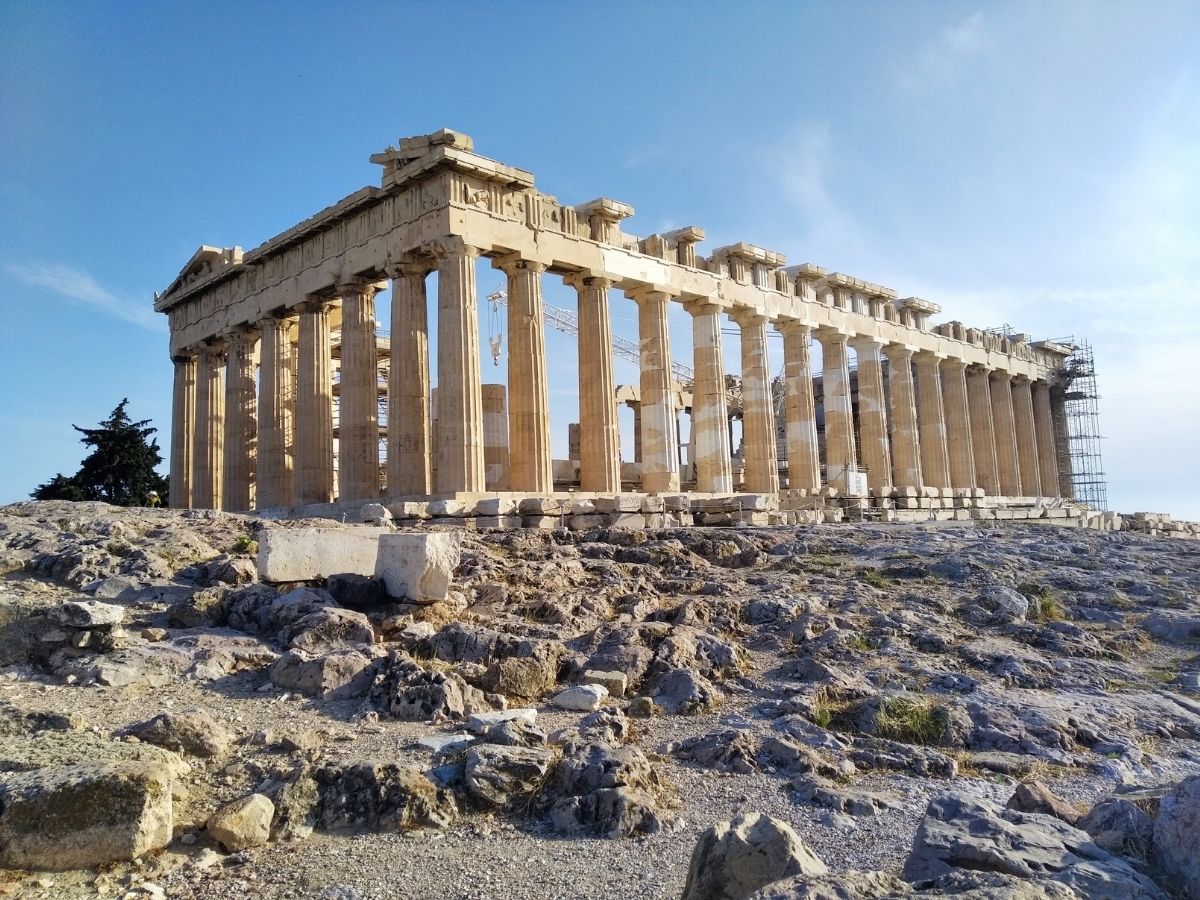
What came after that, is a period commonly referred to as “Byzantine Greece“. According to many historians, this era spans from 324 AD to 1453 AD. These dates are linked to the foundation and fall of the Byzantine Empire and its capital, the majestic city of Constantinople, or modern-day Istanbul.
During the Byzantine era, the Christian Orthodox religion prevailed in Greece. Many of the ancient Greek temples were closed down. The materials were re-used for the construction of buildings all around the country, including some magnificent Byzantine churches.
The Fourth Crusade happened in 1204, marking the beginning of the Frankish / Venetian expansion in Europe, including many regions of Byzantine Greece. Remains of Venetian castles can be seen in many places in our country, like for example Andros, Milos and Kimolos.
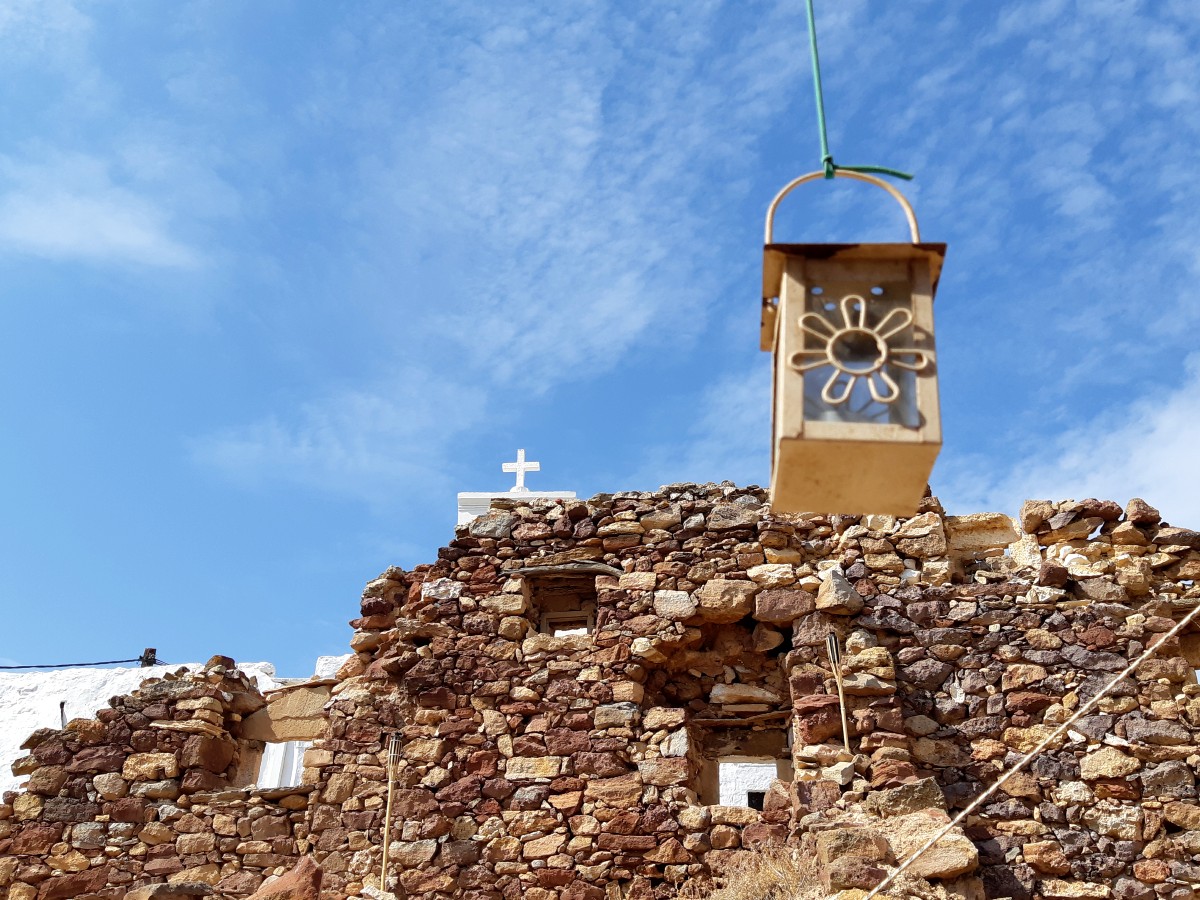
Ruins of the Venetian Castle in Kimolos
After the fall of the Byzantine Empire, the Franks / Venetians were faced with a new threat coming from the East. The mighty Ottoman Empire started expanding throughout Europe. Due to its location on the map – and not only – Greece was an extremely important region. On top of that, numerous groups of pirates were raiding the country, not least the islands.
What was Greece like in the 1800s?
This brings us to the 1800s, the period where revolution and independence led to the rebirth of Greece. At that time, the geographical territory that is Greece today was split among several different conquerors.
Most of today’s Greece was under Ottoman rule, who called their subjects “ragiades“, a word indicating non-Muslim, inferior people. Generally speaking, the subjects had some political and religious rights. However, they had to pay taxes to the Ottoman leader, called a Sultan.
Certain regions of Greece had managed to keep their autonomy. This was partly because they were geographically remote, mountainous and not easily accessible. As a result, the Ottomans saw little value in trying to occupy those lands, and allowed for more rights and freedom of movement.
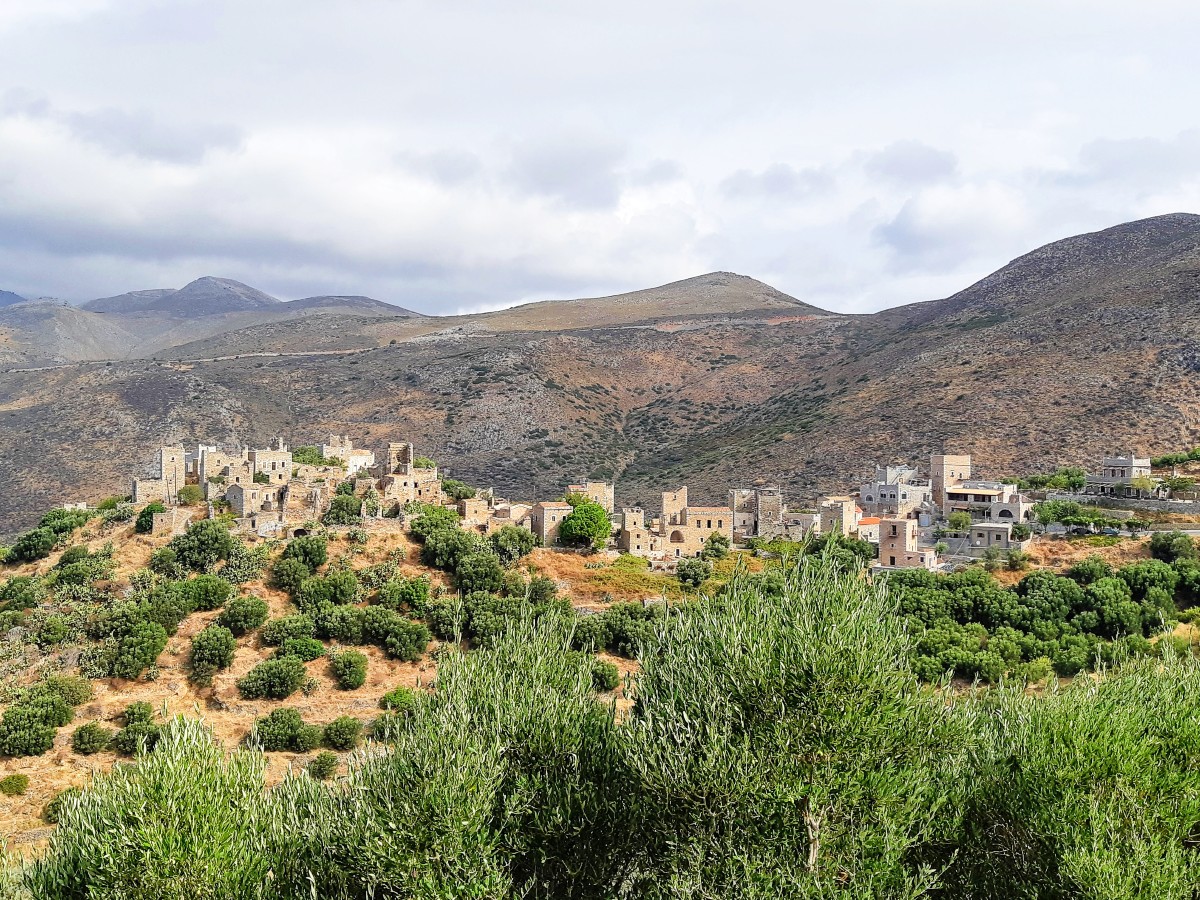
Vathia village in the wild area of Mani
The Mani peninsula in the Peloponnese, Sfakia in Crete, Agrafa in Thessaly and Souli in Epirus were among these areas.
Finally, the Ionian islands, after centuries under the Venetian rule, were briefly occupied by the French and then the British. If you’ve visited any of them, you will be impressed by the amazing architecture, which is very different from most other regions in Greece.
The Ottoman Empire in Greece
The Greek Revolution against the Ottoman Empire was a result of several centuries of oppression. Apart from other cultural differences, a key factor that separated the locals and the Ottomans was religion.
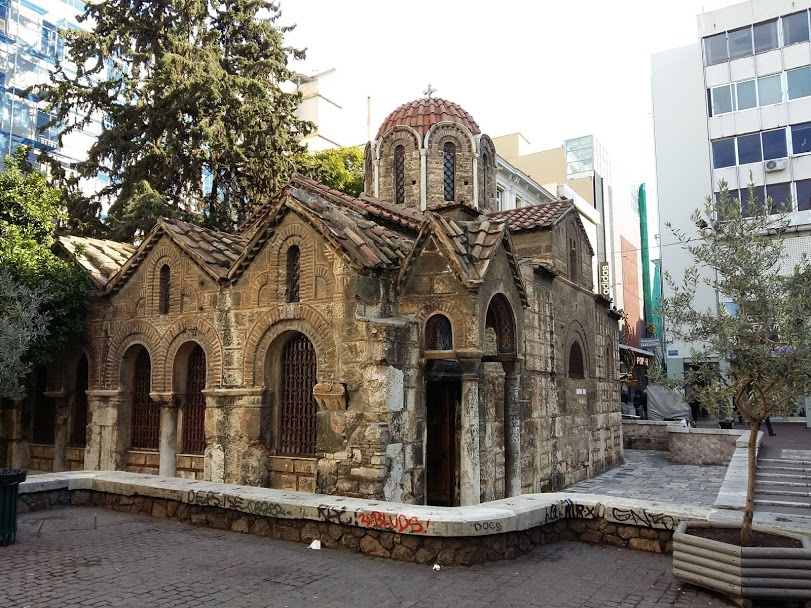
The Byzantine church of Kapnikarea in Athens
During the four centuries of Ottoman occupation, the Sultans gave many privileges to the Greek Orthodox church. This was mainly for political reasons – the Ottomans hoped to have the church on their side, against the Pope in Rome and Western Europe.
As a result, the Orthodox church had enough power and freedom. During the occupation, it played an important role in defining the Greek national identity. This included schooling, with a focus on language and religion.
How did the Greek Revolution in 1821 begin?
There is never just one version of history, and understanding how the Revolution started is rather complex. What is certain is that several parties were involved at different stages, and that there is a lot of background.
Some of the initiators of the Revolution were young Greek intellectuals who had emigrated and lived in the city of Odessa. In 1814, they formed a secret society called Filiki Eteria, whose purpose was to initiate the Revolution.
This ground-breaking society followed principles similar to those of the freemasons, and they grew bigger and bigger over the years. The Initiated sparked the beginning of rebellious acts in many regions, like the Peloponnese, Sterea Ellada and several Aegean islands.

Church of the Holy Apostles in Kalamata
There are several versions describing where and when exactly the Greek Revolution began. According to one story, Greek rebels from Mani area started the first rebellion on 17 March 1821 in Areopolis, with a ceremony in the local church. In the next days, they reached Kalamata, where another mass was held, and further out in the Peloponnese. More people joined them in their fight against the Ottoman Empire.
A popular account is the legend of Agia Lavra monastery in Kalavryta area. This is where a metropolitan Bishop and member of Filiki Eteria, Paleon Patron Germanos, allegedly raised the revolution flag on 25 March 1821.

Interestingly, there are numerous paintings and depictions of this iconic act. However, in reality, the Bishop had raised a revolutionary flag in Patras on 22 March. Legend and history aren’t always compatible.
Revolution and Religion
In the Greek Orthodox religion, 25th March is when the Annunciation of the Virgin is celebrated. This important date later became symbolic of the start of the Greek Revolution.
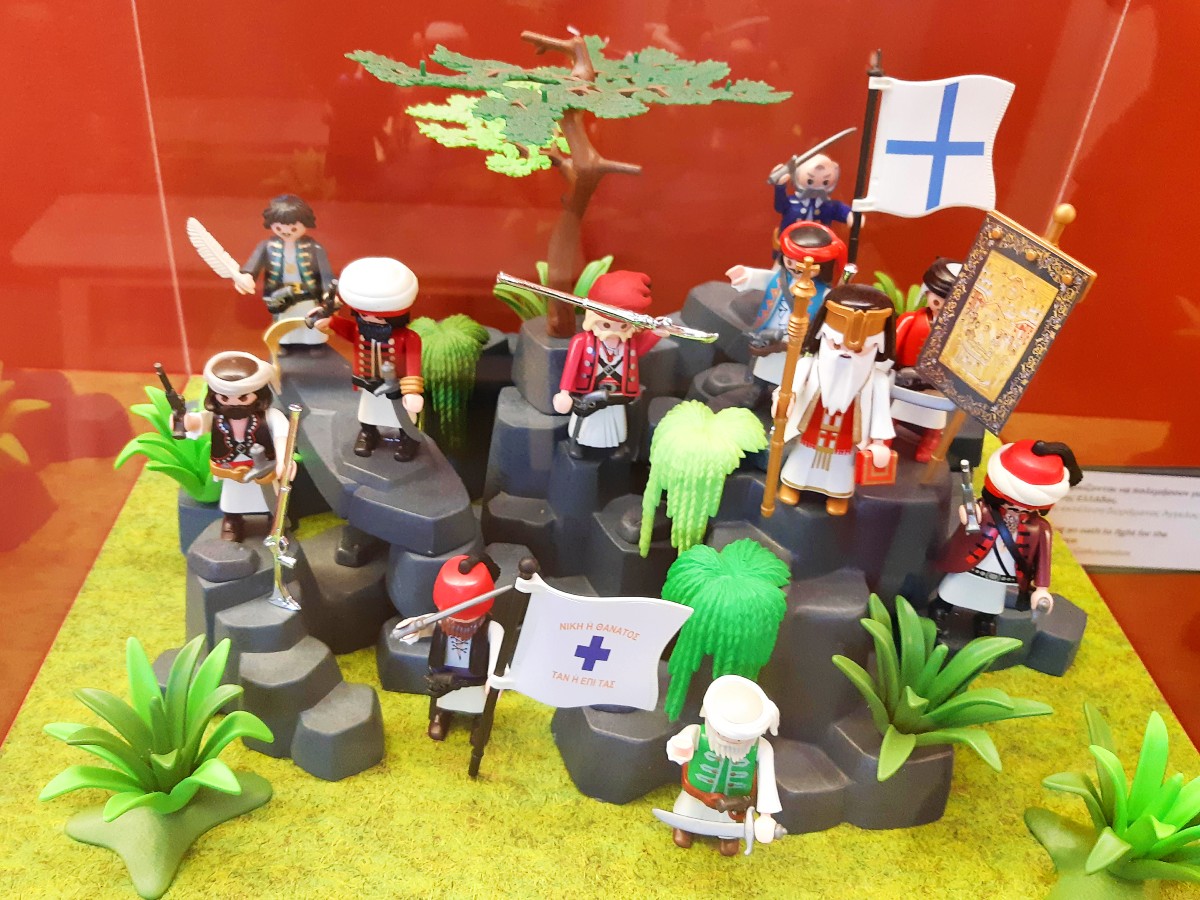
A Playmobil representation of the Greek Revolution!
Regardless of the actual dates and facts, the religious nature of the Revolution remains undisputed. Masses, liturgies and sanctifications went hand-in-hand with warfare. In addition, many of the banners and unofficial flags used by the rebels had one common trait: the cross.
All in all, the Revolution was the result of several centuries of oppression. It was a war between the subjects and the rulers, the peasants and the land-owners, Christianity and Islam. This was not only a fight for revenge, but a battle in search of the long-lost national identity.
Ongoing Struggles and Liberation
The ongoing rebellions were dispersed around the Greek territory, without any centrally organized efforts. Though the first official Greek flag was born in 1822, the struggles kept going for years. The phrase “Freedom or Death” was the motto of the Revolution everywhere apart from Mani, where it was “Victory or Death”.
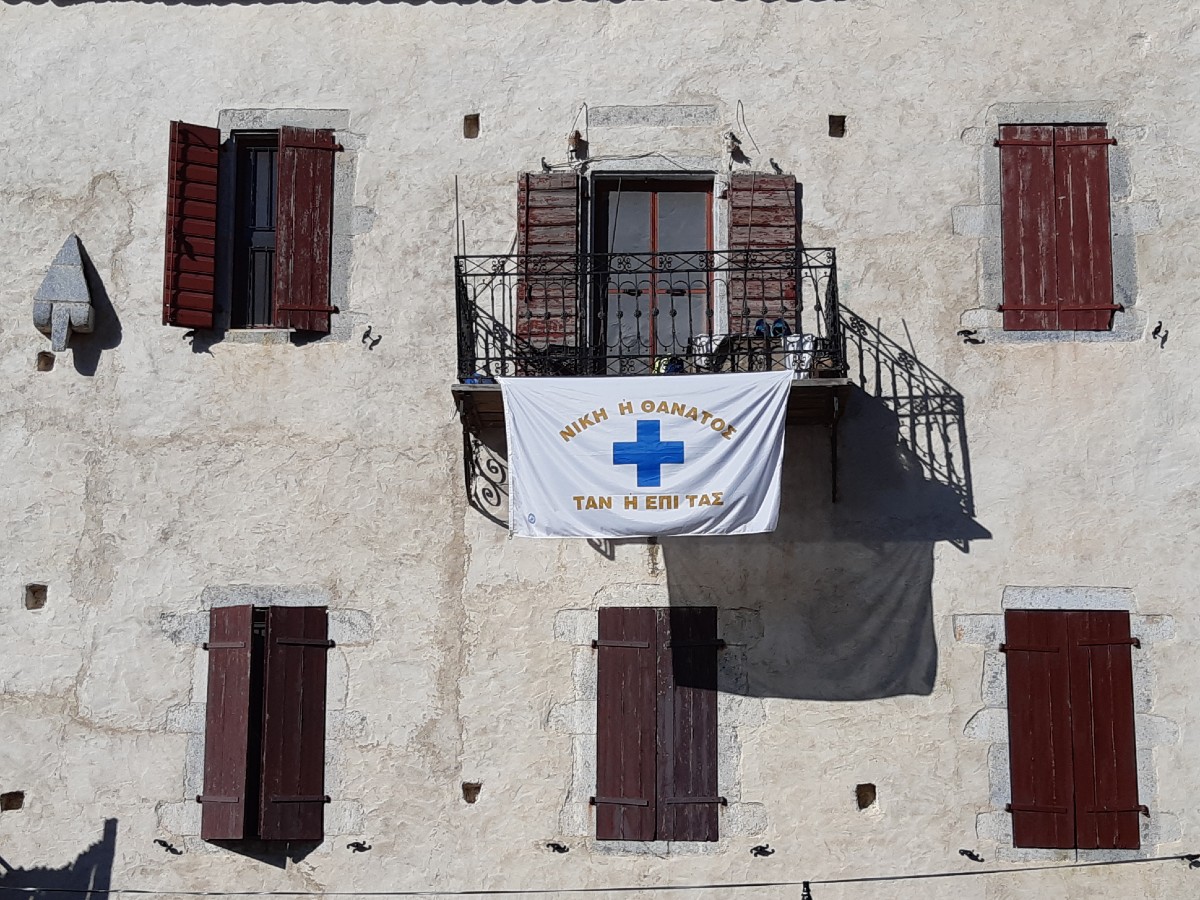
During those times, the Philhellenism movement was expanding in Western Europe. The liberation of Greece was widely discussed around the intellectual circles of the times.
Eventually, United Kingdom, the Kingdom of France and the Russian Empire were involved in warfare. They combined their efforts to push the Ottoman Empire out of the Peloponnese and Sterea Ellada, most notably in the naval battle of Navarino, in October 1827.
Ioannis Kapodistrias, an acclaimed Greek politician, was appointed as the first Governor / Head of state of Greece in 1827. Still, it took another three years for Greece to be recognized as an independent state. This was achieved with an agreement known as the London Protocol, which was signed on 3 February 1830 between the UK, France and Russia.
At the time, the newly established Greece only included the Peloponnese, Sterea Ellada and certain Aegean islands. A Bavarian prince, Otto, became the first King of Greece. In 1838, he established a Royal Decree, setting the 25th March as the celebration date of the Greek Revolution.
It took longer than another century for Greece to become the country we know today. The last region to be merged with Greece was the Dodecanese, in 1948.
Celebrations on Greek Independence Day
All around the world, Greeks celebrate the Independence Day along with the Annunciation of the Virgin. The 25th March is a public holiday in Greece. There are school parades on 24th March and military parades on the 25th.

Still shot from this video
The first school parade happened in 1899 in Athens. Typically, the best student of each school gets to carry the flag. This is considered a privilege, especially if the student is question is popular.
In Athens, the military parade happens in front of the Parliament in Syntagma Square. The Guards, or Evzones in Greek, are also present.

Still shot from this video
Greeks living abroad, known as the Greek diaspora, also celebrate with parades. Some of the biggest ones are in New York city and Melbourne, where there are large populations of Greek origin. It is an utmost honour for an Evzonas to be invited to the parades happening abroad.
Special dishes on Greek Independence Day 25 March
No holiday in Greece wouldn’t be complete without special culinary traditions. Our Independence Day always falls in Lent, a seven-week period before Greek Easter. During that time, religious Greeks traditionally fast from all animal products apart from seafood.
The Annunciation Day is an exception. It is a joyous day, when Archangel Gabriel announced to the Virgin that she would give birth to Jesus Christ. For this reason, it is allowed to break the fast and eat fish.
Our traditional dish of the day is deep-fried cod, which has been dipped in a thick batter. We serve it with a rich garlic sauce called “skordalia“, not to be confused with tzatziki.

Still shot taken from this video by our renowned chef, Akis Petretzikis
Cod has been popular in Greece since the 15th century. It was an inexpensive fish that was easy to transport to the remote mountainous areas in Greece. In addition, it could easily be preserved, contrary to the fresh fish caught in the sea. For this reason, it became our “national dish” for the Annunciation Day.
I have to say, this is one of my least favourite Greek dishes since I was a kid. I’d rather starve than have the fried cod! But most people love it.
Note – You will immediately know whether someone has had the cod with the very, very garlicky skordalia. This is a take-it-or-leave-it delicacy which you can literally smell from several metres away!
Greece Independence Celebrations on 25 March 2021
In 2021, we are celebrating 200 years from the Greek Revolution. Despite the Covid-19 restrictions which are in place, this anniversary is too important to ignore.

Foreign officials from the UK, France and Russia have been invited to Athens, to attend the special 25th March 2021 military parade. This year’s ceremonies will be spectacular, and they will be broadcast on TV for everyone to watch.
The guests will lay a wreath at the Monument of the Unknown Soldier, in front of the Greek Parliament in Syntagma square. This year, the parade will include 15 mounted troops from the Evzones, a rare sight. The Evzones will be wearing special uniforms, representative of 1821, the Balkan Wars, and the two World Wars.

Still shot from this video
Armoured vehicles and other assorted military hardware will be driven in a procession in front of the Parliament. The parade will begin from Zappeio at 10 am, and will last for about an hour. As you would expect, strict security measures will be in place in our city, and the centre will be off-limits for people.

Still shot from this video
Apart from the celebrations in Athens, Greek and foreign Air Force aircraft will fly all over Greece. In addition, American, Russian, French and British naval ships will dock in Greek ports.
Greek Independence Celebrations Around the World
Many cities around the world have also planned special celebrations for Greek Independence Day 2021. In Australia, there will be projections of the Greek flag on the Sydney Opera House, the National Museum of Australia and several other locations.
Iconic buildings in the USA, like the City Hall of San Francisco, the Boston Museum of Fine Arts, the International Airport in Los Angeles and bridges across the country will be lit in blue-and-white colours. More countries with significant Greek populations, such as Canada and South Africa, will celebrate this important day.
Finally, it appears that Belgium’s famous landmark, “Manneken Pis” will wear an Evzonas uniform on March 25. {Whether it’s tasteful or not, is another matter…}
Wherever you are in the world, enjoy this important anniversary!
Here is a little more information on Independence Day in Greece and more Greek celebrations.

Hello! I am Vanessa from Athens, and I love helping people discover more about my country. I was never a history buff, in fact history was my worst subject at school. This has somehow changed in recent years. These days, I really enjoy researching our long and very complex history, and trying to understand what makes Greeks who they are!

this was a lovely read 🙂 saved me from digging into history books to see what today is all about 🙂
bravo!!!
Glad you enjoyed it! But I would strongly suggest to research further, some of the points in the article are often disputed, and as you will know rewriting / interpreting history is a huge challenge! Especially if trying to limit it to a few hundred words 🙂
Wonderful article! Are you the Mrs. Dave Briggs of Dave’s travel pages?
😀 😀 😀 This made us both laugh! Yes, this is us 🙂 https://realgreekexperiences.com/vanessa-and-dave-real-greek-experiences
Vanessa,
Thank you so much for this great article. I too did not have a great interest or achieve in history at school but find myself fascinated wherever l travel.
Your article was just right with the perfect amount of detail, a great read, thank you.
😀 Thank you so much! There are more historical articles here – one of my favourites is this one! https://realgreekexperiences.com/the-ancient-theatre-of-epidaurus-in-the-peloponnese
Good reading !